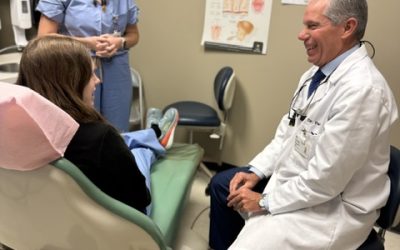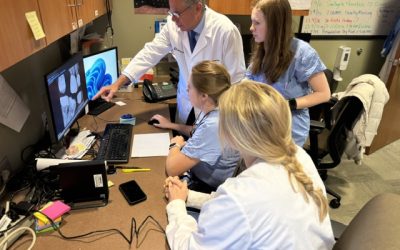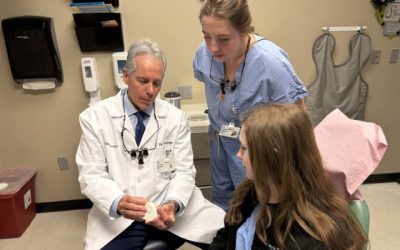Home / Antibiotics in Clinical Dentistry / Antibiotic Prophylaxis for patients with other Medical Conditions
Antibiotic Prophylaxis for patients with other Medical Conditions (Module 2)
Currently, there are no clinical practice guidelines for other medical conditions where antibiotic prophylaxis is often recommended. There is no evidence to support the use of AP for the prevention of a distant site infection from a dental procedure induced bacteremia for any medical condition or procedure other than for those patients at the highest risk of adverse outcomes from Infective Endocarditis (IE).
Yet, many physicians, including oncologists, rheumatologists and transplant surgeons routinely recommend patients use antibiotic prophylaxis for a multitude of medical conditions leaving dentists and patients confused as to whether they need AP, and if they are risking their health if they don’t use AP.
This course (Module 2) will provide the knowledge to enable you to confidently advise patients whether AP is necessary for the following medical conditions:

- Kidney Dialysis patients (AV shunt)
- Solid tissue organ transplants
- Cancer Chemotherapy
- HIV/AIDS Immunosuppression
- Bone Marrow Transplant
- Bone plates, pins, screws, and Spinal Surgery
- Breast implants
- Pacemakers/Defibrillators
- Deep Brain Stimulators
- CSF Shunts
- Central Venous Catheters (Central Lines/ports)
Course Overview: Antibiotic Prophylaxis for Patients with Other Medical Conditions
Many medical professionals—including oncologists, rheumatologists, and transplant surgeons—frequently recommend antibiotic prophylaxis (AP) for various medical conditions, despite a lack of clinical guidelines supporting its use. Currently, there is no evidence that AP prevents distant-site infections caused by dental procedure-induced bacteremia for any condition other than in patients at the highest risk of adverse outcomes from Infective Endocarditis (IE).
This widespread lack of consensus has left dentists and patients uncertain about when AP is truly necessary, leading to unnecessary antibiotic use and potential harm. This course (Module 2) is designed to equip dental professionals with the knowledge and confidence to navigate these complex situations and make evidence-based decisions regarding AP for patients with a variety of medical conditions.
What You’ll Learn:
- Clarification on AP use – Understanding when AP is truly necessary and when it is not.
- Common medical conditions where AP is often recommended unnecessarily – Addressing misinformation and conflicting recommendations.
- Specific conditions covered in this course:
- Kidney dialysis patients (AV shunts) – Assessing AP needs for patients undergoing dialysis.
- Solid organ transplants – Evaluating the risks and benefits of AP in immunosuppressed patients.
- Cancer chemotherapy & HIV/AIDS immunosuppression – Determining appropriate infection prevention measures.
- Bone marrow transplant recipients – Understanding post-transplant considerations.
- Bone plates, pins, screws, and spinal surgery – Addressing misconceptions about hardware-related infections.
- Breast implants – Examining the necessity of AP for cosmetic and reconstructive surgery patients.
- Pacemakers and defibrillators – Reviewing infection risks related to cardiac devices.
- Deep brain stimulators – Understanding infection prevention for neurosurgical patients.
- CSF shunts – Evaluating AP recommendations for patients with cerebrospinal fluid shunts.
- Central venous catheters (Central lines/ports) – Assessing risks and best practices for AP use.
Why Take This Course?
With no official guidelines for many of these medical conditions, dental professionals must rely on evidence-based decision-making to avoid unnecessary antibiotic use and potential risks to their patients. By taking this course, you will:
✅ Gain clarity on when AP is truly necessary.
✅ Reduce confusion for both yourself and your patients.
✅ Ensure safer, more effective patient care.
✅ Support antibiotic stewardship by preventing unnecessary prescriptions.
Stay informed and make confident, evidence-based decisions regarding antibiotic prophylaxis for your patients. Enroll today!
MODULE 1: Antibiotic Prophylaxis for Patients with Prosthetic Joints
MODULE 2: Antibiotic Prophylaxis for Patients at High Risk of Infective Endocarditis
MODULE 2: Antibiotic Prophylaxis for patients with other Medical Conditions
MODULE 3: Antibiotic Stewardship
Module 4: Appropriate Antibiotic Use in Dentistry
Additional CE Programs
![]()
Live classes
See what is available
![]()
Online classes
You pick the schedule
Resgister
Sign up here to take this course in person.
Latest News
The Importance of Antibiotic Stewardship in Dentistry
Did you know that overuse of antibiotics in dentistry can lead to severe complications, including Clostridioides difficile (C. diff) infections and antibiotic-resistant superbug infections? While antibiotics are lifesaving when used appropriately, their overuse can...
When Should Dentists Prescribe Antibiotics?
When prescribing antibiotics, dentists should be sure that the benefit outweighs the risk and that the antibiotics are being prescribed according to current guidelines and best practices. Much of the information clinicians may have learned in dental school or...
The Hidden Dangers of Antibiotic Overuse in Dentistry
The CDC estimates that there are 2.8 million antimicrobial resistant infections each year in the United States leading to 35,000 deaths. Another 29,000 people die every year from antibiotic associated C. difficile infections. Considering dentists are...
Questions? Ask the Experts . . . we're here to help!
Adress
116 NE 153st St # 87394 LA, FL 11234-4567
+1 (208) 921-0035 (9am – 5pm EST, Monday – Friday)
su*****@***********sh.com
Courses
Information
Designed by Powdi Studio © 2021 All Rights Reserved



